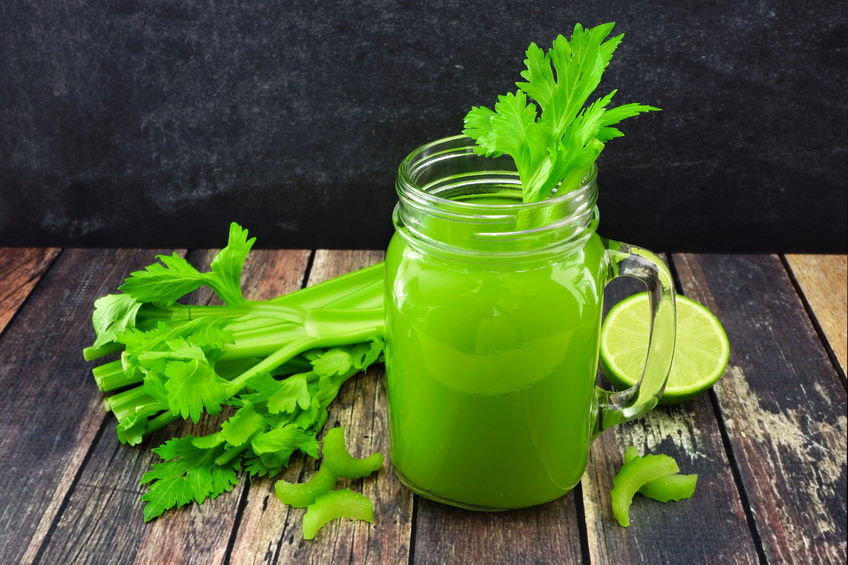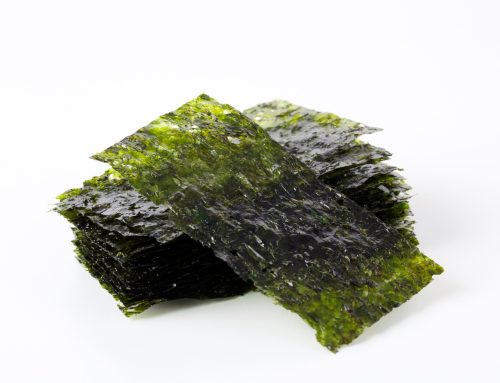Is Celery juice is certainly having a moment as the latest “cure-all.” Searching #celeryjuice on the social-media site Instagram brings up more than 175,000 posts (and counting).
Gwyneth Paltrow’s lifestyle website, Goop, advocates drinking celery juice (16 ounces) every morning, as do supermodel Miranda Kerr and actor Busy Philipps. Celery juice is on the menu at many juice chains and can also be found in markets already bottled, and as an ingredient in some “detox juice cleanses.”
Advocates are almost like cult members. They claim that the juice does all of the following:
- supports the central nervous system (thereby reducing depression, memory loss, and other brain-related conditions),
- helps with liver function,
- lowers blood sugar,
- removes toxins,
- reduces inflammation,
- eases arthritis,
- aids gut health,
- slows various cancers,
- cures autoimmune diseases,
- improves fertility, and,
- makes your skin glow—especially when it’s consumed straight up on an empty stomach.
Interest in celery juice for health is hardly new. Starting in the late 1800s, Dr. Brown’s Cel-Ray, a celery-based soda, was sold and promoted as a remedy for bowel and stomach problems.
Celery has also been used in traditional Chinese and Indian medicine for centuries to treat high blood pressure and other ailments. Among its leading promoters today is Anthony William, who bills himself as the “Medical Medium” and the “originator of the global celery juice movement”—and has a huge social media following (more than 2 million on Instagram)—though he has no formal science, medical, or health training.
Here’s the problem: Although lab studies have found that compounds in celery (such as apigenin) might, for example, have anti-cancer and anti-inflammatory effects, what happens in mice and rats or in test tubes doesn’t necessarily—and more often than not, clearly doesn’t—happen in people.
There’s no good evidence from published human trials to back the many claims made for the juice.
Study on Health Benefits of Celery Juice
A pilot study, in the Natural Medicine Journal in 2013, found that among 30 people with mild to moderate hypertension taking celery seed extract, there was a drop in blood pressure after three and six weeks. But aside from the fact that the study had no control group and was authored by the managing partner of the company making the extract, the celery juice being promoted does not contain the seeds or their extract (and thus has very low levels of these potentially healthful compounds). This makes the findings irrelevant to celery juice drinkers.
How Nutritious Is Celery Juice?
Because of its high water content, celery is very low in calories. It’s not a nutritional powerhouse compared to many other plant foods, but its small amounts of nutrients, including potassium, folate, and vitamin K, get more concentrated in the juice. Celery also contains other plant compounds such as beta carotene (a precursor to vitamin A), limonene, and flavonoids.
Based on an estimate of using 4 to 5 medium celery stalks, a cup of the juice has only about 25 to 30 calories and provides about 10 percent of the Daily Value for potassium. Note, however, that celery has a higher sodium content than most other vegetables, with one cup of juice providing about 130 to 160 milligrams. And though celery itself has some insoluble fiber, promoters advise straining the juice to remove it, based on the notion that the fiber would interfere with the “powerful healing benefits” (hooey!).
Is There Any Harm In Drinking Celery Juice?
Not in moderation. There may be some downsides with consuming large amounts, however, since celery contains furanocoumarins, the same compounds found at higher concentration in grapefruit juice that inhibit enzymes in the body that break down certain medications, including statins and some drugs used to treat blood pressure. This could lead to higher blood levels of these medications and increase the risk of their side effects.
Bottom line on Celery Juice
If you like it, celery juice (or better yet, celery itself) can be a healthy low-calorie addition to a balanced diet when consumed in moderation—though there’s no evidence it has any beneficial properties beyond those of other vegetable juices (and no juice is a cure-all).
And it’s certainly not “truly the savior when it comes to chronic illness,” as Anthony William grandly asserts on his celery juice blog, where a disclaimer incongruously acknowledges that the blog’s content “is not guaranteed to be correct, complete, or up-to-date.” If even the world’s self-proclaimed originator of this juice fad can’t stand behind it 100 percent, why should anyone else?
Click here to read full article about the alleged health benefits of celery juice.







